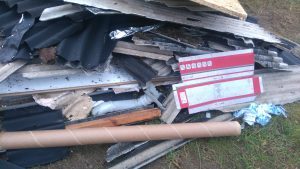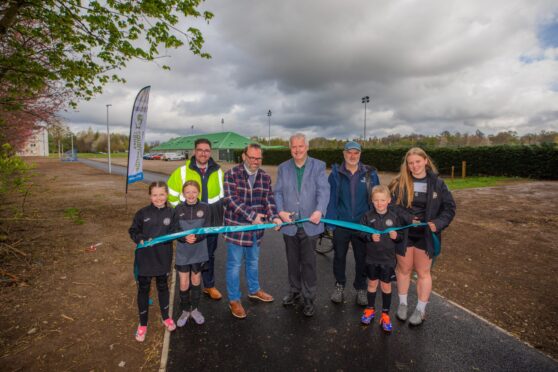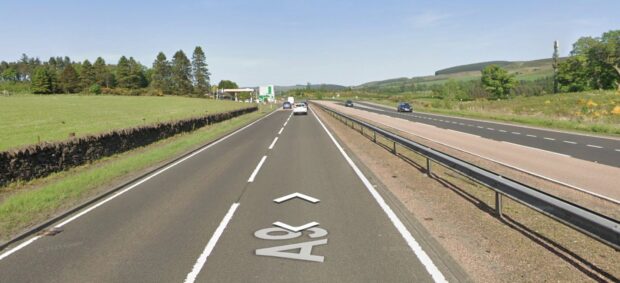Fly-tipping is not a “growing concern”in Perth and Kinross according to the council, despite local worries about the nuisance in rural areas.
Construction materials abandoned on the side of a road pose a “danger” to passing drivers and animals, according to Alyth resident and business owner Anne Fedele.
Anne, who runs the Auchteralyth Steadings holiday cottages, said companies offering to dispose of waste cheaply regularly dump rubbish from construction sites on rural Perthshire roads.
The latest pile of waste, on the road joining Alyth with Airlie Castle, was discovered by Ms Fedele.
Items haphazardly piled in front of a farm gate include pipes, roofing tiles, thermal wall insulation, building rubble and timber frames.
A receipt found at the fly-tip site suggested those who had dumped the materials had shopped at a local builders merchants in Perth the Thursday before, at around 10.30am.
Tyre tracks were still visible in the mud leading to the spot where the construction rubbish was tipped. The materials had still to be collected from the side of the road by Tuesday evening.
Ms Fedele said it was “unfair” traders thought it acceptable to not dispose of building waste properly, blighting the countryside with hazardous materials.
“It might not seem like a lot, but it causes all sorts of issues for farmers when people fly-tip at the entrance to their fields,” she said.
“If a car was to hit the pile, it would cause quite a lot of damage to the vehicle, and it could also potentially spook horses being ridden.
“It costs money to collect it, either through having to take the time to collect the rubbish or by an increase in council tax if the council have to dispose of it.
“We are a close community out here, and we are very concerned and very angry about the problem of fly-tipping. It is making life for rural residents a misery.”
A spokesperson for Perth and Kinross Council said: “All fly-tipping on public land is collected by Perth and Kinross Council.
“However, fly-tipping on private land would be the responsibility of the land owner. The council ,in partnership with the Scottish Environmental Protection Agency (SEPA), can offer help and support for the prevention and disposal of the waste left by fly-tipping.
“Fly-tipping is not a growing concern, but the council is planning to trial a new monitoring and data capturing system in the next year which will give more in-depth intelligent information which can be used to target hot-spots and deploy resources where necessary.
“The council is unable to provide a cost for the collection of the waste from fly-tipping as it is an integral part of the street sweeping budget and not accounted for separately.”











